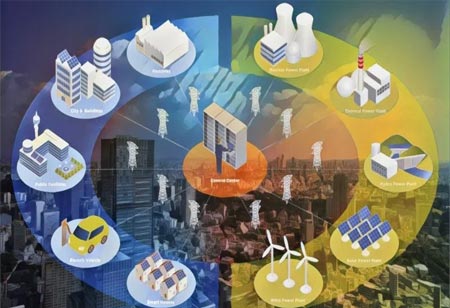On the occasion of 33rd Foundation Day of the Technology Information Forecasting and Assessment Council (TIFAC), a panel of experts came together to discuss about the options that are available to the country across various renewable resources which will supposedly dominate the energy sector in future with new strategies coming up to migrate to a non-fossil fuel-based economy.
A joint study by NITI Ayog and Japan’s Institute of Energy Economics (IEE), also reported that current 62.8% of India’s electric power generation is from thermal power plants that mainly use coal and other fuels including gas, lignite, and diesel to an extent. Even till 2047, coal will have a good amount of share - 42% to 50%. The report also states that the share of hydropower and nuclear power are only 12.4 percent and 1.9 percent respectively, while, 23.1 percent of share goes to the steadily growing renewable energy sources, today. Also, speaking about the others sources of
energy, Saraswat said that India as a large biomass producer will witness rapid growth of bioenergy.
“Hydrogen economy will also come up, but we have to solve the problems of technology in hydrogen storage, transportation, and production economically,” he added.
According to VK Saraswat, General Council, Chairman, TIFAC, and Member, NITI Aayog, coal is the main ingredient for energy as far as non-fossil fuels are concerned. He also highlighted, “The other options are fusion technologies which will be the ultimate problem solvers. There is already a big fusion reactor in our solar system, the sun. So, we can make use of solar energy in all different forms.” The critical issue hovering over renewable resources would be the storage, hence there is a need to work on storage without lithium, as India lacks it. He also said that methanol would be the easiest way to generate hydrogen and certainly will be expected to be the choice of all in near future.
Moreover, IEA (The International Energy Agency) also acknowledged 2019 being a critical year for hydrogen which will have a crucial role when it comes to affordable, clean and secure energy.
Ashutosh Sharma, Secretary, Department of Science and Technology, said, India does not have other crucial resources other than coal, hence, there is utmost need to improve use of coal in terms of advanced ultra-supercritical technology, power generation efficiency, pollution control, emission, among others.
Panelist during the foundation day also talked about the need for planning a path towards a non-fossil fuel based economy. They also talked about the important role of research community - with coordinated actions among every stakeholder - to play in its further evolution.
 Magazine
Magazine
